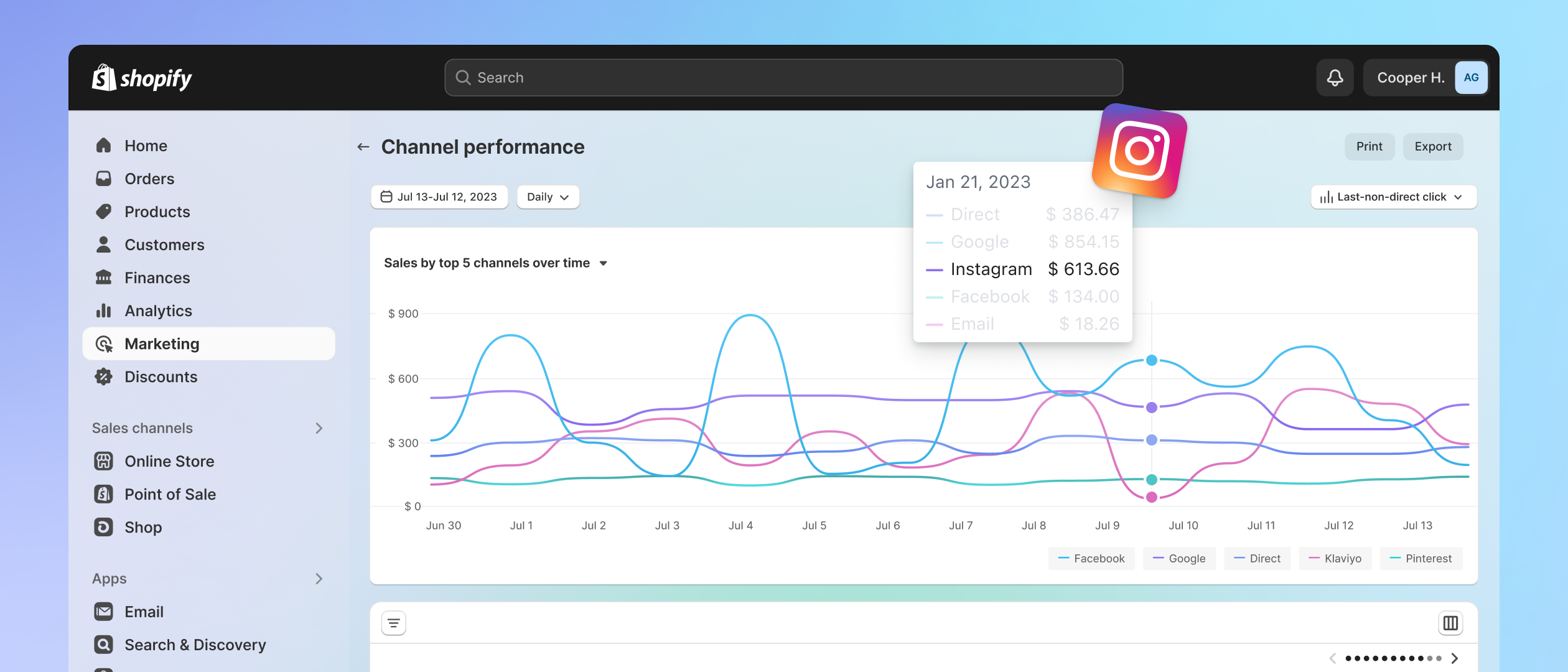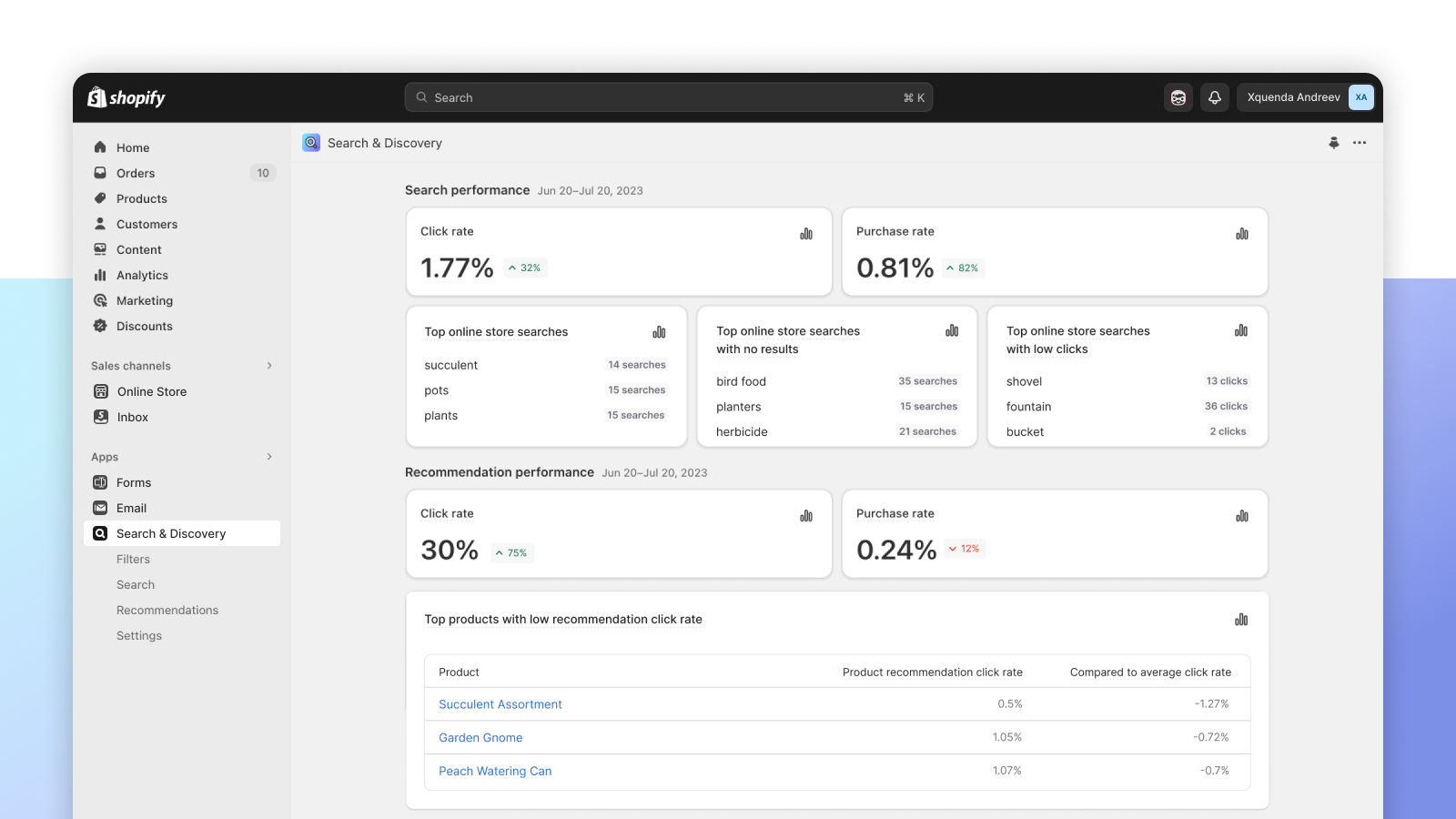Choosing the right e-commerce platform can feel like navigating a minefield. You’re an aspiring entrepreneur or small business owner, eager to launch your online store, but you’re overwhelmed by the options available. Platforms like Shopify, WooCommerce, Magento, and BigCommerce all promise to be the best solution. So, how do you decide?
We’ve seen countless businesses struggle with this decision. Many clients have come to me after wasting time and money on platforms that didn’t meet their needs. We’ve worked with a range of e-commerce platforms, but today, we’re focusing on Shopify. Why? Because it’s a platform that often stands out for its ease of use and robust features, yet it also has its drawbacks.
In this article, you’ll get a comprehensive review of Shopify. We’ll delve into its key features, pricing, and how it compares to its competitors. By the end, you’ll have a clear understanding of whether Shopify is the right fit for your business. Let’s cut through the noise and get to the heart of what makes Shopify a leading choice for many e-commerce businesses.
What’s Inside this Article?

Shopify is a Website Builder.
Shopify has carved out a significant space in the e-commerce world since its inception in 2006. Founded in Canada by Tobias Lütke, Daniel Weinand, and Scott Lake, Shopify was created to address the founders’ frustrations with existing e-commerce platforms. What began as a simple online store for snowboarding equipment has grown into a powerful platform hosting over a million businesses worldwide.
Shopify’s rise to prominence is due to its user-friendly interface and comprehensive feature set, making it accessible for both beginners and seasoned developers. The platform is designed to cater to a wide range of businesses, from small startups to large enterprises. Its versatility and scalability are among the key reasons it has become a go-to solution for e-commerce web development.
Key highlights of Shopify’s offering include a fully hosted solution, meaning you don’t have to worry about server management or security updates. Additionally, Shopify provides a wide range of customisable themes, an intuitive drag-and-drop builder, and a robust app store, enabling you to extend the functionality of your store easily.
Key Features of Shopify
When evaluating an e-commerce platform, it’s essential to understand the key features that can make or break your online business. Shopify is packed with tools and functionalities designed to streamline the process of setting up and managing an online store. Here’s a closer look at what Shopify offers:
1. User Interface and Ease of Use
One of Shopify’s standout features is its user-friendly interface. Whether you’re a tech-savvy developer or a complete novice, Shopify’s intuitive design makes it easy to navigate. The dashboard is clean and straightforward, allowing you to manage your products, orders, and customer information with minimal effort.
The setup process is equally simple. Shopify provides a step-by-step guide to help you get your store up and running quickly. With its drag-and-drop builder, you can customise your store’s look and feel without needing any coding skills. This ease of use is a significant advantage for small business owners who want to focus on selling rather than dealing with technical complexities.
2. Design Options and Themes
Shopify offers a wide range of professionally designed themes that cater to various industries. Whether you’re selling fashion, electronics, or digital products, there’s a theme that suits your needs. These themes are mobile-responsive, ensuring your store looks great on any device.
For those who want more control over their store’s design, Shopify’s theme editor allows for extensive customisation. You can adjust colours, fonts, and layouts to match your brand identity. If you have coding knowledge, you can further tweak the themes using Shopify’s Liquid templating language.
3. App Store and Integrations
The Shopify App Store is a treasure trove of tools and integrations that enhance your store’s functionality. From SEO and marketing apps to inventory management and customer service tools, there’s an app for virtually every need. This extensive app ecosystem enables you to customise and scale your store as your business grows.
Popular integrations include email marketing services like Mailchimp, analytics tools like Google Analytics, and various payment gateways. These integrations help you streamline your operations and improve your store’s performance without needing to switch platforms or use multiple systems.
4. Payment Processing
Shopify provides its payment gateway, Shopify Payments, which simplifies the payment process for both you and your customers. With Shopify Payments, you can accept credit cards directly through your store without needing to set up a third-party payment provider. It also supports various payment methods, including Apple Pay, Google Pay, and Amazon Pay.
For those who prefer using other payment gateways, Shopify supports over 100 third-party providers, giving you the flexibility to choose the best option for your business. However, it’s worth noting that using external gateways may incur additional transaction fees.
5. Security and Reliability
Security is a top priority for any online business, and Shopify excels in this area. As a fully hosted solution, Shopify takes care of all security updates and compliance requirements. It provides SSL certificates for your store, ensuring that all data transmitted between you and your customers is encrypted.
Shopify also offers robust uptime, ensuring your store is available to customers around the clock. With 24/7 monitoring and support, you can have peace of mind knowing that any issues will be promptly addressed.
6. SEO and Marketing Tools
Driving traffic to your online store is crucial, and Shopify equips you with the tools to do just that. The platform offers built-in SEO features, including customisable title tags, meta descriptions, and URL handles. It also generates an XML sitemap and supports rich snippets to improve your store’s visibility in search engine results.
Marketing your store is made easier with Shopify’s range of built-in tools. You can create discount codes, gift cards, and email campaigns directly from the dashboard. Additionally, Shopify integrates with social media platforms, allowing you to sell products on Facebook, Instagram, and Pinterest.
With these key features, Shopify provides a comprehensive solution for building and managing a successful online store.

What Is the Cost of Shopify?
Understanding the costs associated with any e-commerce platform is crucial for making an informed decision. Shopify offers a tiered pricing structure designed to accommodate businesses of all sizes, from small startups to large enterprises. Here’s a breakdown of Shopify’s pricing plans and what each one includes:
1. Shopify Lite
At $9 AUD per month, Shopify Lite is the most affordable option. However, it’s not a full-fledged e-commerce store. Instead, it allows you to add e-commerce functionality to an existing website or Facebook page. This plan includes:
- A buy button for your website or blog
- Integration with Facebook to sell directly on your page
- Access to Shopify’s POS (point of sale) app
- Basic customer support
2. Basic Shopify
Priced at $29 AUD per month, the Basic Shopify plan is ideal for new e-commerce businesses. It includes everything you need to start and manage a simple online store, such as:
- Online store with unlimited products
- Two staff accounts
- 24/7 customer support
- Sales channels including Facebook, Instagram, and Pinterest
- Discount codes
- Manual order creation
- Abandoned cart recovery
3. Shopify
The Shopify plan, at $79 AUD per month, is designed for growing businesses that need more advanced features. This plan offers everything in Basic Shopify plus:
- Five staff accounts
- Professional reports
- Gift cards
- Lower credit card rates and transaction fees
4. Advanced Shopify
For $299 AUD per month, Advanced Shopify is geared towards larger businesses that require more robust reporting and shipping features. It includes all features of the Shopify plan, along with:
- 15 staff accounts
- Advanced report builder
- Third-party calculated shipping rates
- Even lower credit card rates and transaction fees
5. Shopify Plus
Shopify Plus is the enterprise-level solution, with pricing starting at $2,000 AUD per month. This plan is tailored for high-volume merchants and includes:
- Customisable checkout
- Advanced automation tools with Shopify Flow
- Dedicated account management
- Priority support
- Enhanced security features
Transaction Fees
In addition to the monthly subscription fee, Shopify charges transaction fees if you use a third-party payment gateway. These fees vary by plan:
- Basic Shopify: 2.0% per transaction
- Shopify: 1.0% per transaction
- Advanced Shopify: 0.5% per transaction
Using Shopify Payments can help you avoid these transaction fees, as it is Shopify’s in-house payment processing service.
Additional Costs
While the subscription fees cover most basic needs, there are additional costs to consider:
- Apps: Many Shopify apps come with a monthly fee, so if you need additional functionality, this can increase your overall cost.
- Themes: While Shopify offers free themes, premium themes are available at a one-time cost ranging from $140 to $180 AUD.
- Domain Name: If you want a custom domain, you can purchase it through Shopify or another domain registrar.
By understanding the various pricing plans and associated costs, you can determine which Shopify plan best suits your business needs and budget.
Shopify vs. Competitors
When selecting an e-commerce platform, it’s essential to compare your options to ensure you choose the best fit for your business needs. Shopify is a strong contender, but how does it compare to other popular platforms like WooCommerce, Magento, and BigCommerce? Here’s a detailed comparison:
1. Is Shopify or WooCommerce / WordPress Better?
Ease of Use
- Shopify: Known for its user-friendly interface, Shopify simplifies the setup and management process, making it ideal for beginners.
- WooCommerce: As a WordPress plugin, WooCommerce requires a bit more technical knowledge. It offers flexibility but may involve a steeper learning curve, especially for those unfamiliar with WordPress.
Customization
- Shopify: Provides extensive theme customisation with an intuitive drag-and-drop builder, though deeper customisation may require knowledge of Liquid, Shopify’s templating language.
- WooCommerce: Highly customisable thanks to WordPress’s open-source nature, allowing for extensive modifications through plugins and custom code.
Cost
- Shopify: Offers transparent pricing with tiered plans. Additional costs can arise from apps and premium themes.
- WooCommerce: The plugin itself is free, but costs can add up with hosting, themes, and various plugins needed to extend functionality.
Scalability
- Shopify: Scales easily with business growth, offering higher-tier plans and Shopify Plus for large enterprises.
- WooCommerce: Scalability depends on the hosting provider and can become complex and costly as traffic and sales volume increase.
2. Is Shopify or Magento Better?
Ease of Use
- Shopify: Designed for ease of use, with a straightforward setup process and user-friendly dashboard.
- Magento: More complex and geared towards developers. Requires significant technical expertise to set up and manage, making it less suitable for beginners.
Customization
- Shopify: Customisation is straightforward but may be limited compared to open-source platforms.
- Magento: Highly customisable with extensive options for developers. The open-source version allows for deep customisation, but requires coding knowledge.
Cost
- Shopify: Predictable pricing with subscription plans and potential additional costs for apps and themes.
- Magento: The open-source version is free, but costs can be significant due to hosting, development, and maintenance expenses. Magento Commerce, the enterprise version, is quite expensive.
Scalability
- Shopify: Easily scalable with various plans and enterprise solutions.
- Magento: Highly scalable but requires more resources and technical know-how to manage effectively at scale.
3. Is Shopify or BigCommerce Better?
Ease of Use
- Shopify: Offers a very intuitive, user-friendly experience suitable for users of all skill levels.
- BigCommerce: Also user-friendly, but some users find its interface slightly less intuitive than Shopify’s.
Customization
- Shopify: Strong customisation options with a variety of themes and apps. Some limitations exist without advanced coding knowledge.
- BigCommerce: Provides robust customisation options with fewer restrictions compared to Shopify. Allows for extensive integration and custom development.
Cost
- Shopify: Transparent, tiered pricing with additional costs for apps and themes.
- BigCommerce: Similar pricing structure, but includes more built-in features in its base plans, potentially reducing the need for additional apps.
Scalability
- Shopify: Scales effortlessly with business growth, offering plans and solutions for businesses of all sizes.
- BigCommerce: Equally scalable, designed to handle large volumes of traffic and sales without requiring extensive modifications.

Pros and Cons of Shopify
Understanding the advantages and disadvantages of Shopify can help you decide if it’s the right platform for your e-commerce needs.
Pros
Ease of Use
Intuitive interface makes it easy for anyone to set up and manage an online store.
Comprehensive Features
Wide range of built-in tools and functionalities, from payment processing to SEO.
Scalability
Suitable for businesses of all sizes, with plans that grow with your business.
Security
Fully hosted solution with robust security measures and SSL certificates included.
Support
24/7 customer support via phone, email, and live chat.
Cons
Cost
Monthly subscription fees and additional costs for apps and premium themes can add up.
Customisation Limitations
While extensive, deeper customisation may require knowledge of Shopify’s Liquid code.
Transaction Fees
Additional fees if not using Shopify Payments can be a drawback for some businesses.

Real-World Examples
Case Study: Bella & Bloom Boutique
Bella & Bloom Boutique, an online women’s clothing store, leveraged Shopify to expand their market reach and streamline their ecommerce operations. Prior to using Shopify, they managed orders manually, which was time-consuming and error-prone. By integrating Shopify’s user-friendly platform, they were able to automate their inventory management, order processing, and customer communications. Within the first year, Bella & Bloom reported a 65% increase in sales and significantly improved customer satisfaction ratings due to smoother operations and faster delivery times.
Testimonial: Gear Gadgets
Gear Gadgets, a retailer specializing in electronic accessories, switched to Shopify to enhance their online presence and sales capabilities. The owner, James Liu, stated, “Shopify has transformed our online store with its excellent SEO tools and customizable templates, allowing us to create a compelling and user-friendly shopping experience. Our revenue has doubled, and handling peak traffic times has become seamlessly efficient.” This reflects Shopify’s robust infrastructure and customization options that cater to specific business needs.
What’s Next?
Choosing the right e-commerce platform is a crucial decision for any aspiring entrepreneur or small business owner looking to launch an online store. Among the myriad of options available, Shopify often stands out due to its ease of use, robust features, and scalability. It has proven to be a reliable choice for a wide range of businesses, from small startups to large enterprises.
Despite its many advantages, Shopify is not without its drawbacks. The costs associated with using the platform, including monthly subscription fees and transaction fees (if not using Shopify Payments), can accumulate, particularly for businesses that heavily customise their stores with paid apps and themes. Additionally, while Shopify is user-friendly, there are limitations in customization that may require familiarity with its templating language, Liquid, for more profound changes.
However, the positives largely outweigh the negatives. Shopify’s intuitive design, comprehensive security measures, and strong customer support system make it an excellent choice for those who prioritise a hassle-free, reliable, and scalable e-commerce solution. Whether you’re just starting or looking to expand your online business, Shopify offers the tools and infrastructure needed to succeed in a competitive digital marketplace. For many entrepreneurs and small businesses, Shopify represents a balanced mix of user-friendliness, powerful features, and scalability, making it a recommended option for launching an online store. To help you make an informed decision, I recommend reading these insightful blogs:
- Shopify vs. WordPress: A Comprehensive Comparison for E-commerce and SEO
- Machine Learning vs. AI: Making Informed Business Decisions
These articles provide a deeper understanding of the platforms and technologies that can impact your business strategy.




